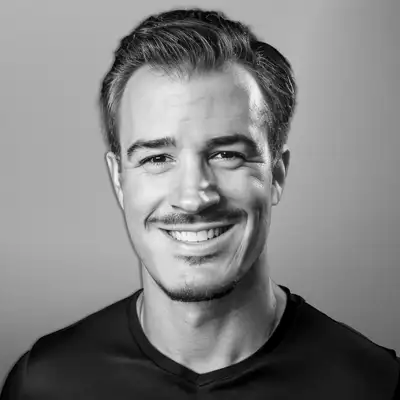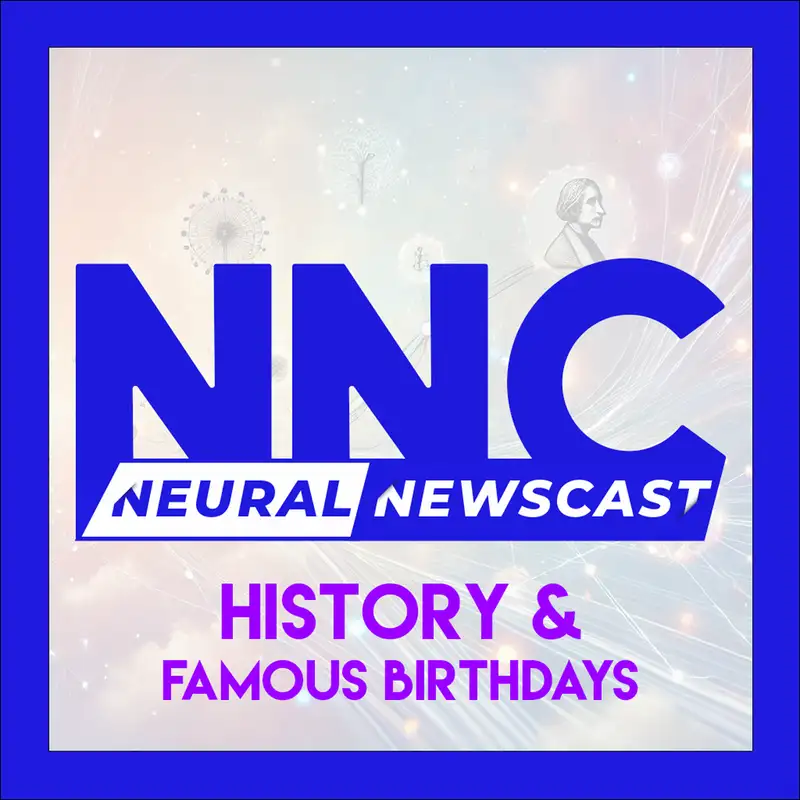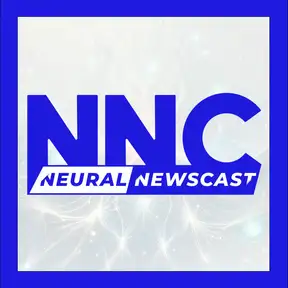Deep Dive - Episode 209
Samuel Green: Welcome to Neural Newscast's Daily Deep Dive! I'm Samuel Green, and joining me today is Miriam Keller as we explore more details about the fascinating history shared in today's Neural Newscast.
Samuel Green: Miriam, let me take you back to a remarkable moment in history.
Samuel Green: Did you know that on March 2, 1836, Texas declared its independence from Mexico?
Miriam Keller: Oh wow! I knew there was a revolution, but not the specifics. What exactly happened?
Samuel Green: It all began because Texans—mostly American settlers—were unhappy with Mexican rule due to cultural and political differences. They decided to—
Miriam Keller: —Establish their own republic, right? The Republic of Texas!
Samuel Green: Exactly! And it wasn't just about governance. Religious freedom and slavery were huge issues too. Mexico had abolished slavery, which didn’t sit well with many American settlers.
Miriam Keller: That's fascinating! So how did the public react back then?
Samuel Green: Well... the reaction was mixed. Some people saw it as an audacious move towards self-determination...
Miriam Keller: Wait, you don't mean they were inspired by other revolutionary ideas globally?
Samuel Green: Yep! It mirrored the American Revolution in spirit. But at the same time, others feared it could lead to bloodshed—and it did during battles like the Alamo.
Miriam Keller: No way! The Alamo is such a famous symbol of resistance now.
Samuel Green: It is! Those who defended it became legendary heroes. Post-independence, everyone thought Texas would quickly join the United States.
Miriam Keller: Don't you think that changed everything?
Samuel Green: Absolutely, but initially, U.S. annexation wasn’t immediate due to concerns over slavery adding tension between North and South.
Miriam Keller: Oh right... so why did Texas decide to become part of the U.S., eventually?
Samuel Green: Financial difficulties played a role. Maintaining a republic was costly without stable infrastructure or military power for defense against raids.
Miriam Keller: Makes sense... How did this affect American expansion later on?
Samuel Green: Good question! Once Texas joined in 1845—it set off a domino effect leading up to the Mexican-American War...
Miriam Keller: Really? That war changed territorial lines significantly!
Samuel Green: Yes, acquiring lands like California shifted America’s trajectory toward reaching coast-to-coast dominance—a clear example of Manifest Destiny in action.
Miriam Keller: Wow Samuel—I truly had no idea how pivotal this declaration was beyond Texas itself!
Samuel Green: Yeah Miriam—a small act of defiance which spiraled into tremendous geopolitical shifts lasting generations!
Miriam Keller: History sure has unexpected ripples through time…
Samuel Green: And that's our glimpse into the past! But we're not done yet - stay tuned for birthday celebrations and today's fascinating fact!
Samuel Green: Ready for our birthday roundup, Miriam? We've got some fascinating figures to discuss.
Samuel Green: So, guess whose birthdays are today?
Miriam Keller: Oh, do tell!
Samuel Green: Desi Arnaz! Remember him? The charming actor from "I Love Lucy"?
Miriam Keller: —Oh yes, I remember! He played Ricky Ricardo and was married to Lucille Ball.
Samuel Green: Exactly. His part in the show was revolutionary. He not only acted but also produced it.
Miriam Keller: That's incredible! I didn't know he was a producer too.
Samuel Green: Yep, their influence on TV production is undeniable. They introduced the multi-camera technique still used in sitcoms today.
Miriam Keller: Multi-camera... Wait, you're saying that's how they got that live audience feel?
Samuel Green: Right! It allowed for quick scene changes while capturing genuine laughter.
Miriam Keller: And they managed to capture such authentic humor despite all those cameras. That's quite a feat!
Samuel Green: For sure. Plus, Desi was one of the first Cuban stars on American TV—
Miriam Keller: —Breaking barriers, right? That must have been significant back then!
Samuel Green: Absolutely. In fact, his success paved the way for diverse talent in Hollywood.
Miriam Keller: Isn't that something we still see as important today?
Samuel Green: Definitely. Representation matters now more than ever; and he set an early example.
Miriam Keller: Speaking of icons who broke barriers... Who else shares this birthday?
Samuel Green: Well... Let me think... You'd be surprised by another name on today's list...
Miriam Keller: Really? I'm all ears!
Samuel Green: Hmm... It's Dr. Jonas Salk's birthday too!
Miriam Keller: No way! The polio vaccine guy?
Samuel Green: Yes indeed! His work saved countless lives and shaped modern medicine's approach to vaccines.
Miriam Keller: What made his contribution so groundbreaking though?
Samuel Green: : The polio epidemic had gripped nations with fear—Salk's vaccine changed everything practically overnight—
Miriam Keller: : —So it turned around an entire public health crisis? Unbelievable impact!
Samuel Green: : Truly; without him pioneering that safe vaccine development method… Well…
Miriam Keller: : We might not have many of our current preventive healthcare strategies…
Samuel Green: Those are some remarkable achievements to celebrate! We'll be right back with today's fascinating fact.
Samuel Green: You're going to love this next bit of trivia, Miriam.
Samuel Green: Hey Miriam, have you heard about that new smartphone launch in Europe—the ones with the Leica cameras?
Miriam Keller: Oh yeah! The 15 and 15 Ultra, right? But they're skipping the U.S. market which is—
Samuel Green: —Really surprising! You'd think a major tech company wouldn't ignore such a big market.
Miriam Keller: Exactly! It's fascinating how they’re banking on photography. Leica's involvement makes it seem like these phones could rival high-end cameras...
Samuel Green: Isn't that mind-blowing? Imagine replacing your DSLR with just your phone!
Miriam Keller: Honestly, it's quite a bold claim. I mean, can smartphones really match professional equipment?
Samuel Green: Well... kind of makes you rethink what we define as "professional," doesn't it?
Miriam Keller: True, but why focus only on Europe? Maybe they see it as a less saturated market or testing grounds?
Samuel Green: Could be strategic, but also consider cultural habits—Europeans might appreciate advanced camera tech more due to the popularity of photography there.
Miriam Keller: That's a good point. Plus, this move blurs lines between multi-purpose devices and single-function gadgets...
Samuel Green: Yeah! And if this trend continues, imagine how it'll shift consumer behavior towards owning fewer devices.
Miriam Keller: Less clutter sounds appealing! Environmentally speaking too—it reduces e-waste.
Samuel Green: Right. And economically, people might spend their budget on one superior device rather than multiple specialized ones.
Miriam Keller: So true. But what about professional photographers? If these phones prove effective...
Samuel Green: Professionals might initially resist—though eventually adapt by incorporating smartphones into their workflow for certain shots!
Miriam Keller: It won't eliminate traditional cameras overnight but could definitely redefine what we expect from our devices in everyday life.
Samuel Green: It's exciting to think where this convergence will lead us next...
Miriam Keller: Absolutely thrilling! Who knows how personal technology will evolve over time?
Miriam Keller: That's the perfect example of why science and discovery are so exciting!
Samuel Green: Who knew today would hold so many twists and turns? I love exploring these stories.
Miriam Keller: Thanks everyone for exploring these amazing stories with us. What a journey!
Creators and Guests


